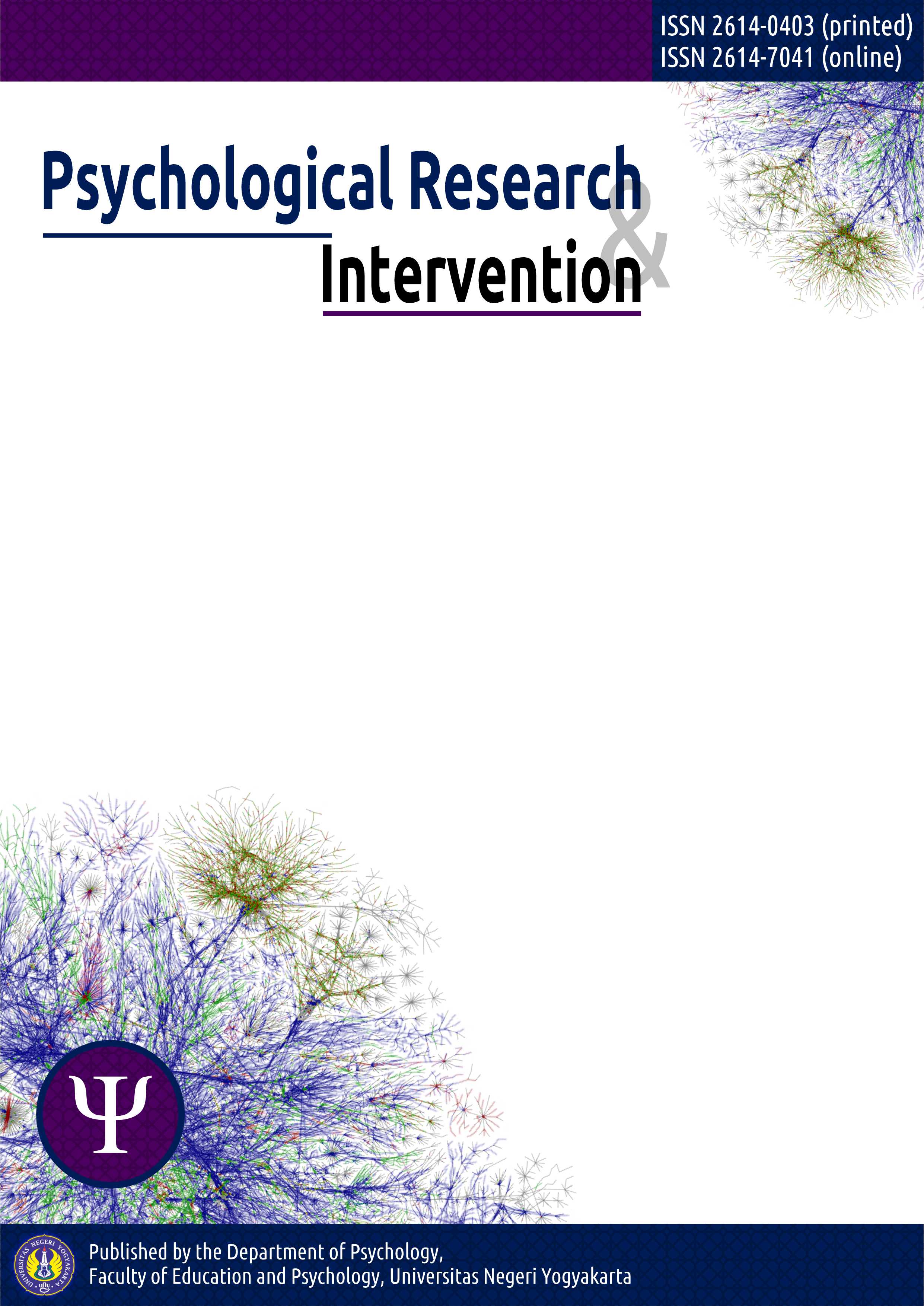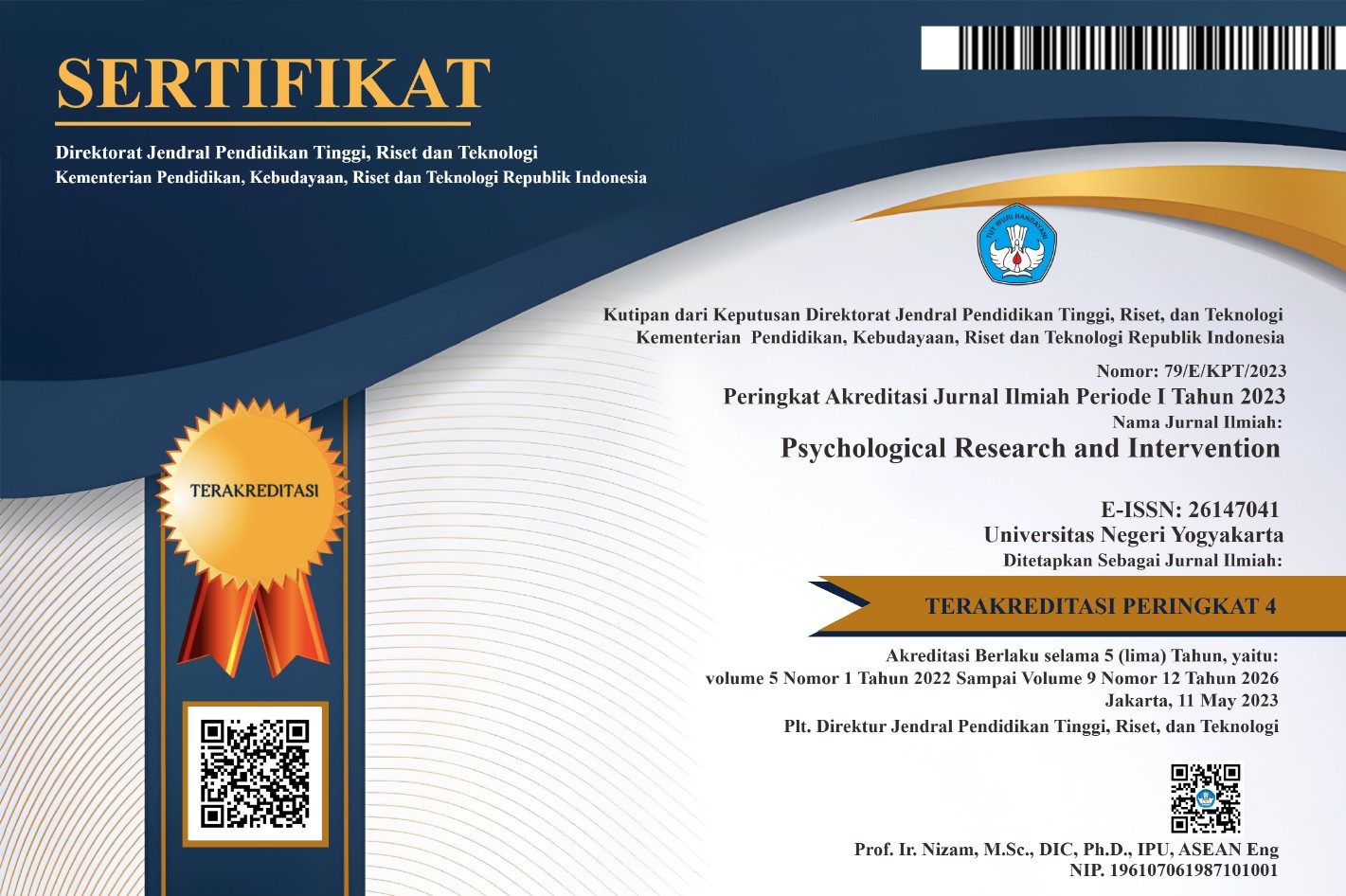Aptitude Test's Predictive Ability for Academic Success in Psychology Student
DOI:
https://doi.org/10.21831/pri.v3i1.34731Keywords:
Academic success, Differential Aptitude Test, Predictive ValidityAbstract
The developments that occur in psychological measurement have an effect on the development of the quality of the tests used. Differential Aptitude Test (DAT) is a psychological test commonly used to measure a person's aptitude. Aptitude measurement needs to be proven on the success of post-aptitude test studies. Therefore, this study aims to examine: (1) the predictive validity of differential aptitude tests in predicting academic success in the context of psychology study programs, and (2) which subtests are influential in predicting the success of studies in psychology study programs. Data collection was carried out using test techniques and documentation techniques. The research subjects were 148 students majoring in psychology at Yogyakarta State University. The data obtained were then analyzed using multiple linear regression analysis techniques, where the subtest scores on the DAT were treated as predictors and the Grade Point Average scores were treated as the dependent variable. Based on the results of the analysis, it can be concluded that: (1) the DAT test can predict the success of the study in the psychology study program; and (2) the subtest in DAT that has the most influence in predicting the success of the study in the psychology study program is the verbal subtest and the numerical subtest.
References
Aiken. L. R. (1988). Psychological testing and assessment (6th Ed.). Boston: Allyn and Bacon. Inc.
Akessa. G. M.. & Dhufera. A. G. (2015). Factors that influences students academic performance: a case of rift valley university. jimma. ethiopia. Journal of Education and Practice. 16 (22). 55-63.
Allen. M.J.. & Yen. W.M. (1979). Introduction to measurement theory. California: Brooks/Cole Publishing Company Wardsworth. Inc.
Anastasi. A. (1997). Psychological testing (7th Ed). New Jersey: Prentice-Hall Inc.
Anderson. L.. & Krathwohl. D.A. (2001). Taxonomy for learning. teaching. and assessing: a revision of bloom's taxonomy of educational objectives. New York: Longman.
Australlian Psychology Accreditation Council (APAC). (2010). Rules & accreditation standards for psychology courses. Finders Lane: APAC.
Ballado. R.S.. Morales. R.A.. & Ortiz. R.M. (2014). Development and validation of a teacher education aptitude test. International Journal of Interdisciplinary Research and Innovations. 2 (4) 129-133.
Bennett. G. K.. Seashore. H. G.. & Wesman. A. G. (1948). Differential Aptitude Tests. Journal of Consulting Psychology. 12. 62.
Curabay. M. (2016). Meta-analysis of the predictive validity of scholastic aptitude test (SAT) and american college testing (ACT) scores for college GPA. Thesis. Denver: University of Denver.
DAT for Selection General Abilites Battery: Technical Manual and User Guide. (2013). London: Pearson Education Ltd. ISBN 978 0 749104 54.
Dev. M. (2016). Factors affecting the academic achievement: a study of elementary school students of NCR delhi. india. Journal of Education and Practice. 7 (4). 70-74.
Fraser. W.J.. & Killen. R. (2003). Factors influencing academic success or failure of first-year and senior university students: do education students and lecturers perceive things differently?. South African Journal of Education. 23 (4). 254-260.
Gronlund. N. E. (1981). Measurement and evaluation in teaching. New York Macmillan Publishing Co.
Hijazi. S.Y.. & Naqvi. S. M. M. R. (2006). Factors affecting students' performance: a case of private colleges. Bangladesh e-Journal of Sociology. 3 (1). 1-10.
Linn. R. L. (1984). Ability testing: individual differences. prediction. and differential prediction. Dalam A. K. Widgor & W. R. Garner (Eds.). Ability testing: uses. concequences. and controversies (Part II). Washington DC: National Academy Press.
Mankar. J.. & Chavan. D. (2013). Differential aptitude testing of youth. International Journal of Scientific and Research Public. 3 (7). 1-6.
Marais. A. C. (2007). Using the differential aptitude test to estimate intellegence and scholastic achievement at grade nine level. Thesis. Pretoria: University South Africa.
Mardapi. D. (2007). Teknik penyusunan instrumen tes dan nontes. Yogyakarta: Mitra Cendekia.
New Zealand Psycologists Board. (2011). Core competencies for the practice of psychology in new zealand. Wellington: New Zealand Psychological Society.
Nijenhuis. J.T.. Evers. A.. & Mur. J.P. (2000). Validity of the differential aptitude test for the assessment of immigrant children. An International Journal of Experimental Educational Psychology. 20 (1). 99-115.
Nunnaly. J. C. (1970). Introduction to psychological measurement. Tokyo: Kogakusha company. Ltd.
Pearson Assessment. (2009) The differential aptitude test. Report for simon sample. Upper Sadle River: Pearson Education.
Raza. M.A.. & Shah. A.F. (2009). The impact of parents' education towards the science aptitude of the students at elemtary level in southern punjab. Pakistan Journal of Social Sciences. 29 (1). 117-125.
Raza. M.A.. & Shah. A.F. (2011). Impact of favourite subject towards the scientific aptitude of the students at elementary level. Pakistan Journal of Social Sciences. 31 (1). 135-143.
Ruth. A. (1971). A study of the predictability of high school grades and the differential aptitude tests for success in vocational programs in health careers. Thesis. Wisconsin: Wisconsin University.
Santosa. A. B. (2013). Seleksi Calon Mahasiswa Baru terhadap Kualitas Lulusan. Cakrawala Pendidikan. 16 (1). 51-57.
Sax. G. (1980). Principles of educational and psychological measurement and evaluation. Belmont: Wardsworth Publication Company. Inc.
Shea. D. L.. Lubinski. D.. & Benbow. C.P. (2001). Importance of assessing spatial ability in intelectually talented young adolescents: a 20-year longitudinal study. Journal of Educational Psychology. 93 (3). 604-614.
Stickler. L. (2007). A critical review of the SAT: menace or mild-mannered measure?. The College of New Jersey. Journal of Student Scholarship. 9. 1-9.
Sudarmanto. R.G. (2005). Analisis Regresi Linear dengan SPSS. Yogyakarta: Graha Ilmu.
Young. J. W. (2001). Differential validity. differential prediction. and college admission testing: a comprehensive review and analysis. Research Report No.2001-6. New York: College Entrance Examination Board.












